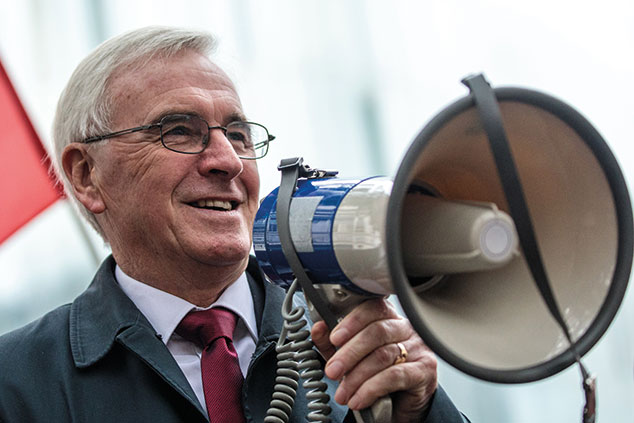
A four-day working week. Lots of extra bank holidays. Billions of extra public spending on a green new deal, and possibly even a universal basic income paid to everyone regardless of whether they ever get around to doing any work or not. As the Labour Party conference rolled out its manifesto pledges, it seemed to have left all sense of reality behind. A form of fantasy economics is moving into the mainstream.
It is getting hard for even the most diligent critics of Shadow Chancellor John McDonnell to keep track of all the weird and wacky promises he has made. Another one pops up every few minutes. This week he unveiled plans for a 32-hour week, with no loss of pay. Admittedly that is only a goal – a report the party commissioned concluded the plan was unworkable, and not even especially popular, but employers will anyway be forced to work towards it. Labour also plans a £10-an-hour minimum wage, extended to 16- and 17-year-olds who can currently be paid much less. And it wants four more public holidays a year. At this rate, there soon won’t be anyone left doing much work at all.
That may be a problem as the party also plans to spend lots and lots of money, with plans that include free social care for the over-65s, 30 hours a week of free childcare for two- to four-year-olds, free buses for the under-25s, free school meals for everyone, free university education, interest-free loans for electric cars, and a free annual sub to Sky Sports on Father’s Day (okay, okay, I made that last one up, but the others were all on the list – “free” has turned into Labour’s favourite word). How is any of that going to be paid for? With higher taxes on companies and the rich, even if there is very little evidence that raises real money.
Three lessons for the Labour Party loons
Similarly bonkers policies are getting a hearing throughout Europe and in the US. The moderate centre-right needs to find a way of fighting back. Here are three good places to start. First, politicians, central bankers and business leaders need to explain the basics of economics better. Schools could help out by incorporating a few lessons into the core curriculum. The most important is that, fundamentally, money has to be earned. Sure, governments can borrow, and central banks can launch the occasional blitz of quantitative easing. But in the medium-term, and outside of a financial crisis, the books have to be balanced. You can’t spend money you don’t have, and you can’t magic it out of thin air either. If you do, you will end up with an economic disaster.
Next, there has to be more emphasis on production. We can’t just tax our way to prosperity, and we can’t just print money to pay for everything either. If we could, we might as well just pay everyone £100,000 a year. Or £200,000. Ultimately, a country can only consume as much as it produces. Neither McDonnell or any of his populist peers around the world ever talk about how we are going to raise output. But that is what really matters.
Finally, the importance of incentives needs to be re-learned. No one is going to work very hard if they are not rewarded for doing well. If you are given an income regardless of whether you are working or not then there is no point in being surprised if lots of us decide not to bother. If you don’t get to keep much of what you earn from your job, or what you might make from starting a business, it is hard to see why anyone should put in the effort. We need something to make us get up in the morning. Money is the best incentive we have found so far, and it is hard to see anything else replacing it.